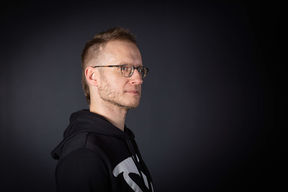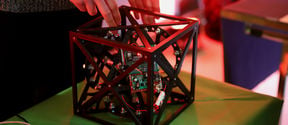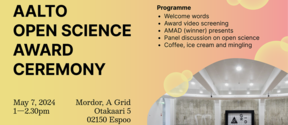Jaakko Lehtinen receives an ERC Consolidator Grant of nearly 2 million euros

Jaakko Lehtinen, Associate Professor at Aalto University’s department of Computer Science, will receive a 1.9 million euro Consolidator Grant from the European Research Council (ERC).
The ERC funding was awarded to Lehtinen’s project Learning Pixel-Perfect 3D Vision and Generative Modeling (PIPE) for five years. The significant grant allows him and his research group to focus on studying how to bring models based on machine vision, machine learning, and physics together. Lehtinen hopes that the new funding attracts top-level postdoctoral researchers to his group. ‘We are talking about things that haven’t been yet demonstrated in almost any way. In that sense, our goals are very ambitious,’ he says.
To give an example, a machine can spot a tiger by its stripes – not its cat-like shape. GAN models, which Lehtinen and his colleagues helped develop, can generate very realistic human faces, but we cannot ask those models to tell what a face shape is based on those photos.
In the ERC-granted research project, Lehtinen studies the most fundamental questions of machine vision research – how can we teach a machine to perceive the world as animals do? – and his work can be used to help improve AI applications like robots.
Current robots only function well in environments in which conditions never change. That means that the robots’ skills are not generalizable: If we teach a machine to clean an apartment, it will not be able to do the task if we ever rearranged the furniture, let alone clean someone else’s apartment.
Creating AI that can operate with humans in a real, complex world is one of the main goals of the Finnish Centre for Artificial Intelligence (FCAI) initiated by Aalto University, University of Helsinki, and VTT Technical Research Centre of Finland. Lehtinen is actively contributing to FCAI’s operations.
Findings answers to the research questions on which Lehtinen and his group focus helps to take game and film productions steps further. Currently, designing for example 3D environments of games is very laborious, slow, and expensive. ‘Should we succeed in all this, we will come up with something that has never been seen before.’
The ERC Consolidator Grants are awarded to outstanding researchers of any nationality and age, with seven to twelve years of experience after obtaining a doctoral degree, and a scientific track record showing great promise.
Lehtinen graduated as a Doctor of Science (in Technology) from the Helsinki University of Technology in 2007 after which he worked as a postdoctoral researcher at the Massachusetts Institute of Technology (MIT) for three years. Aalto University appointed him as an Associate Professor in 2012, and in addition, he works as a Principal Research Scientist at NVIDIA.
Further information
Jaakko Lehtinen
Associate Professor, Aalto University
[email protected]
- Published:
- Updated:
Read more news

Camilla Hollanti elected as a member of Finnish Academy of Science and Letters
Camilla Hollanti leads a prominent research group on applications of algebra and number theory. The central topic of her research is to apply the methods of algebra and number theory to problems encountered in communication systems. Applications include wireless security and secure distributed computation.
Aalto ARTS alum Vidha Samya’s artwork featured at the Venice Biennale 2024
The Pavilion of Finland presents ‘The pleasures we choose’ at the 60th International Art Exhibition – La Biennale di Venezia until 24 November 2024.
IoT Forge donates EUR 1 million to the School of Engineering
The donation will be used for research and education on the Industrial Internet and digital twins.